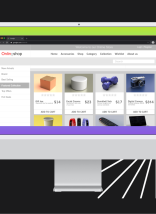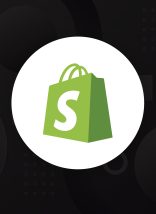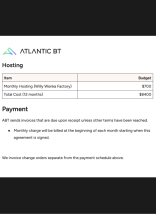Is Shopify right for my business?
Because of its scaling capabilities and easy integrations, Shopify is an all-encompassing solution that fits the requirements of many businesses.
Shopify might be the best choice for you if you identify with the following:
- I need a quick and easy way to transition into eCommerce.
- My business is a startup, and I need to be able to manage my store easily (without technical knowledge).
- I only have a few products/services now, but I will be adding many more in the future.
- I can invest in a web partner to get me started, but then I’d like to manage my store independently.
- I have an online store, but I am too busy running my business to keep up with eCommerce improvements.
- My small product catalog site is taking off and needs a more reliable solution.
You may need a more complex solution, like Magento, if you identify with these issues:
- I want full control over the customization of my eCommerce store.
- My store needs to integrate with specialized software.
- At times, I have large surges in traffic and need highly scalable hosting.
- I’d prefer to rely on a website partner to fully manage my upgrades, feature development, and integrations.
Shopify feature breakdown.
While each of Shopify’s plans includes hosting, staff accountants, a blog, and other basic features; some additional features can be purchased through the Shopify app store.
What’s included in each tier?
Most businesses choose between one of Shopify’s main tiers: Basic Shopify, Shopify, and Advanced Shopify. Each of these three tiers include an online store, unlimited products, staff accountants, discount codes, SSL certificate, and abandoned cart recovery. Other features – like gift cards, professional reports, and cubic pricing – will come at a price.
Shopify also offers Shopify Lite – which adds simple features to an existing website or social media page for $9/month.
At the other end of the spectrum, Shopify Plus offers enterprise features and scalable hosting at $2,000/month.
Shopify web design.
Shopify offers hundreds of professional themes to choose from, from free options or templates closer to $200.
All that is needed to tweak your design is a basic understanding of HTML and CSS. However, Shopify uses a template language called Liquid for web design and development, and for some this presents a steep learning curve.
It may be in your best interest to rely on a partner who already has experience with Shopify’s designer-focused programming language.
Shopify Inventory Management.
Shopify allows for unlimited products as well as product types. You can group products into many different types of categories, simplifying product recommendations. Avoid tedious counting and never disappoint customers with out-of-stock items.
- Smart Collections: Shopify collections will help you sort products according to inventory level, price, and vendor to make automations quick and easy.
- Barcodes: You can use barcodes to keep track of products, and access a wireless barcode scanner to instantly ring in customer orders.
- Inventory Tracking: Keep track of your stock count, and set up automations to place orders as they dwindle.
- Inventory analytics: An analytics dashboard displays behavior on your website and gives you insight that helps with forecasting, creating marketing promotions, and planning orders.
Shopify fulfillment and shipping.
Shopify Shipping allows you to purchase labels as you fulfill orders through Shopify. Prices are automatically calculated based on product weight.
There are several fulfillment options through Shopify:
- Manual fulfillment
- Automatic fulfillment
- Use a fulfillment service with an app
- Use a custom fulfillment service
Shopify Point of Sale solutions.
Streamlining in-store and online sales with simple hardware can help you gain better business insights.
Shopify has varying POS solutions, including options for pop-up shops, businesses with 1 retail location, and more.
Shopify Email Marketing.
Email is an essential part of driving sales, encouraging existing customers to make purchases, and building loyalty.
The Shopify App store offers integrations with many popular email platforms, including Constant Contact, Drip, and Jilt. Check out the full list of Shopify’s email app integrations.
Furthermore, Shopify recently announced its own email marketing software, Shopify Email. While you can apply for early access to see for yourself, Shopify Email will allow you to create templates and track results all within the platform.
Shopify Product Reviews.
Shopify offers an app to help you easily collect and display product reviews. Import and export reviews using a CSV, respond to them within the platform, and add a simple snippet to your website to help Google find and display your ratings.
Shopify and SEO.
Shopify’s app store offers an SEO Manager at $20/month to help you manage the SEO basics, including:
- Edit meta tags
- Scan for issues
- Access keyword suggestions
- Add structured data
- Review sitemap
What can I do myself, and when will I need a partner to help?
While Shopify was designed for easy setup and use, relying on a trusted partner will facilitate the process. An experienced agency can help you:
- Navigate technical setup – like your domain, hosting, and email
- Narrow down the right apps to use
- Categorize your products effectively
- Design your site to maximize conversions
- Build a marketing and email automation strategy
- Comply with eCommerce best practices
- Migrating from another eCommerce platform
Ready to get started?
Whether you are interested in building a new website or moving your store from another platform, our team can help you get started. Contact us for a free consultation.










